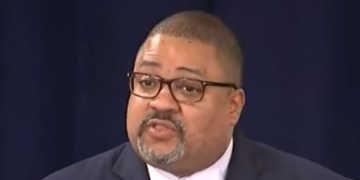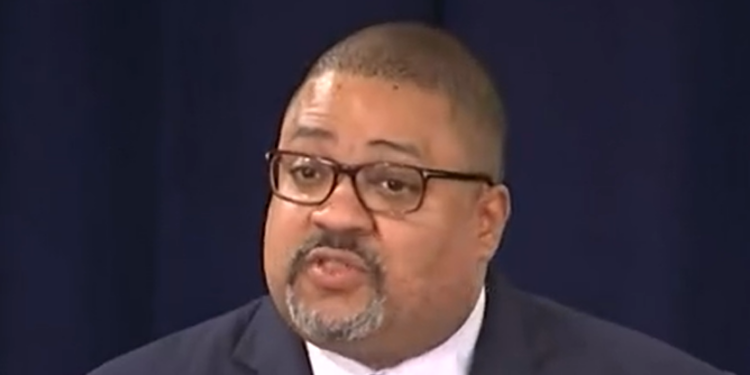On June 13, 2024, I had the honor of appearing before the U.S. House Committee on the Judiciary to discuss the critical issue of jurisdictional overreach in the prosecution of federal campaign finance law.
Specifically, my testimony centered on the actions taken by New York County District Attorney Alvin Bragg in prosecuting former President Donald Trump. This case raised significant concerns about the integrity and consistency of enforcement of federal campaign finance law.
The Federal Election Campaign Act (FECA) of 1971 serves as the bedrock of federal campaign finance regulation. It delineates the authorities responsible for enforcing these rules, vesting exclusive jurisdiction in the Federal Election Commission (FEC) and the Department of Justice (DOJ).
This statutory framework is designed to ensure a uniform application of campaign finance laws nationwide, preventing the creation of a fragmented enforcement landscape and leveraging the expertise and resources of federal agencies.
District Attorney Bragg’s decision to pursue charges against former President Trump for alleged violations of federal campaign finance laws marks a significant deviation from this established legal framework. By doing so, Bragg effectively usurped the jurisdiction that Congress explicitly reserved for federal authorities.
This overreach sets a troubling precedent for the politicization of legal proceedings at the state level.
The danger here lies in the disparate state enforcement standards that torture well established federal law processes. As an example, the state judge in New York misinterpreted the federal criminal mens rea (mental intent) standard and gave a jury instruction which read “willfully” contributed, but the mens rea standard under FECA is “knowing and willful.”
Now imagine the 50 states enacting the crime of “campaigning by unlawful means” and a thousand different state and local prosecutors prosecuting presidents, former presidents, presidential candidates, and any number of candidates for other federal offices under varying interpretations of the FECA by bootstrapping those laws through their state’s “unlawful means” criminal code.
Next, given the clear precedent established by the U.S. Supreme Court regarding the prohibition of state officers prosecuting federal crimes, it is perplexing why Attorney General Merrick Garland, and the DOJ did not intervene in the prosecution of former President Donald Trump.
The DOJ’s Election Year Sensitive Policy is designed to protect the public from being influenced by legal proceedings during an election year. Had the DOJ intervened early to assert its jurisdiction, and that of the FEC, this issue would not be the predominant topic of the 2024 presidential election.
I recently asked for documents at the FEC to be unredacted which show that the DOJ, after a year-long investigation, found no criminal acts committed by former President Trump. The FEC documents reveal that the DOJ had previously requested that all civil enforcement investigations into the supposed $130,000 payment to Stormy Daniels be held in abeyance.
This move, coupled with the DOJ’s conclusion that no further legal action was warranted, highlights the federal jurisdiction over this matter. Thus, underscoring the problematic nature of Bragg’s prosecution.
The implications of allowing local district attorneys to prosecute based on their interpretations of federal campaign finance laws are profound. Such actions risk eroding the uniformity and predictability that FECA aims to provide.
This could lead to a fragmented enforcement landscape where political motivations and local biases influence the application of laws meant to govern national elections.
Moreover, the actions taken by the state court in New York, at the behest of a local official, reflect a long-standing concern articulated by Alexander Hamilton as far back as 1784 in his “Letter from Phocion to the Considerate Citizens of New York.”
There, Hamilton warned against state government officials taking arbitrary actions against citizens. A caution that remains relevant today.
An even larger concern is the deterrent effect this encroachment on federal jurisdiction will have on well qualified candidates from seeking public office, fearing disparate legal standards based on locality. Preserving the centralized enforcement mechanism envisioned by FECA is essential for fair and impartial oversight of federal campaign finance regulations.
Alvin Bragg’s misguided prosecution of former President Donald Trump represents a clear usurpation of federal jurisdiction, with the DOJ’s inaction compounding the issue. The dangerous precedent of local prosecutorial overreach in matters of federal concern must be addressed to maintain the integrity of our electoral system.
We must reaffirm the exclusive authority of the FEC and the DOJ to enforce federal campaign finance laws, ensuring consistent and impartial application across the United States.
Trey Trainor currently serves as a U.S. Senate confirmed Federal Election Commissioner. He formerly served as FEC chairman in 2020.
The views and opinions expressed in this commentary are those of the author and do not reflect the official position of the Daily Caller News Foundation.
(Featured Image Media Credit: Screen Capture/CSPAN)
All content created by the Daily Caller News Foundation, an independent and nonpartisan newswire service, is available without charge to any legitimate news publisher that can provide a large audience. All republished articles must include our logo, our reporter’s byline and their DCNF affiliation. For any questions about our guidelines or partnering with us, please contact [email protected].



























 Continue with Google
Continue with Google